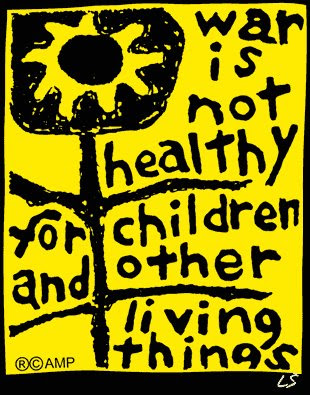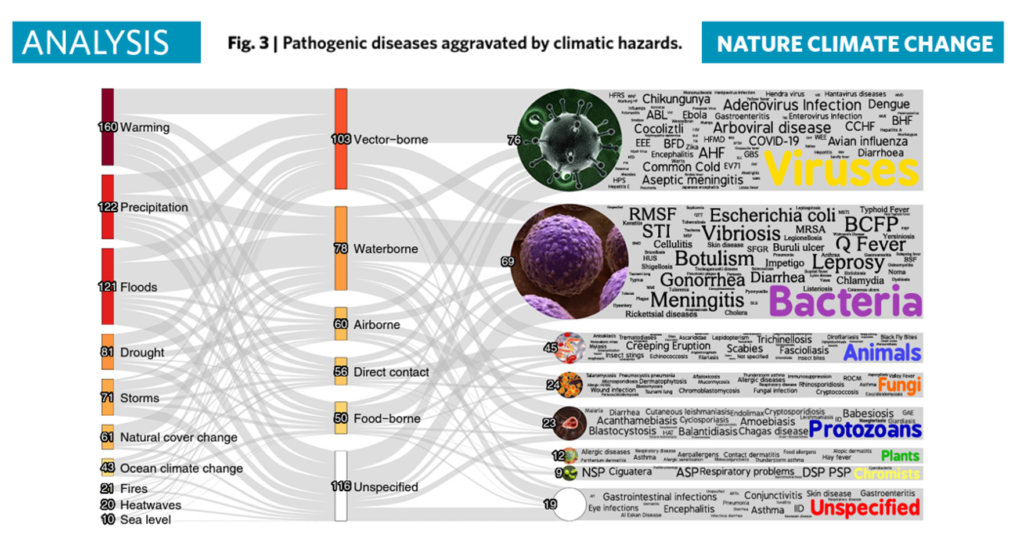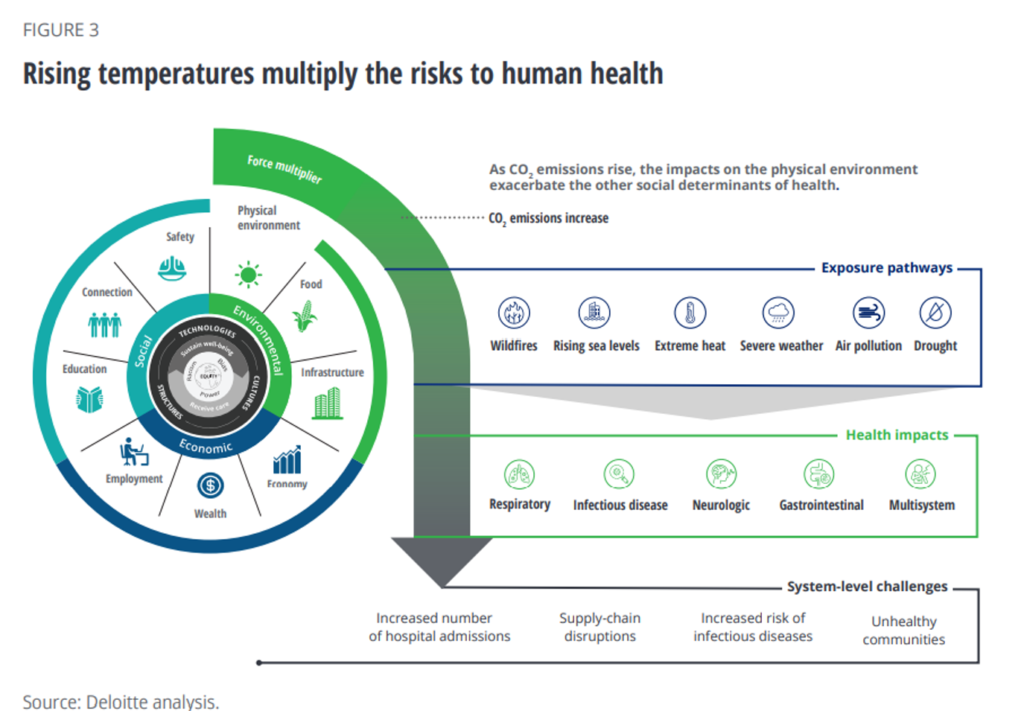
Climate Change Is Not Good for Health and Living Things – HealthPopuli.com
There is an image from my childhood, drawn by Lorraine Schneider, which reads “War is not healthy for children and other living things.”

As I read through a paper published this week on climate change’s contribution to the burden of chronic disease, I couldn’t help but conjure up Lorraine’s observation from my little girl memory bank.
One of the largest meta-analyses mashing up research evidence on the impact of climate change on human health was featured in the journal Nature Climate Change this week. Lorraine could replace the word “war” with “climate change” and be clinically sound in the eyes of the team that collaborated on the study.
A key goal of this research was to integrate available information that would enable the team to fully quantify the threat to humanity posed by climate change relative to pathogenic diseases, broadly defined to include both strictly infectious disease as well as some 40 diseases caused by biological agents often overlooked in research on climate change impacts on human health — such as outbreaks of asthma, skin conditions, and respiratory illnesses.

This eye-popping chart organizes climatic hazards, disease pathways, and the diseases in the right side of the graphic.
Some 58% of all infectious diseases impacted human health were aggravated by climatic hazards most notably warming, precipitation, floods, drought, storms, land cover change, ocean climate change, fires, heatwaves, and sea level.
There is a lot of detail for you to explore in the paper, one of which was particularly eye-opening to me and my understanding of this topic: this was the section subtitled “People impaired by climatic hazards.” In this long paragraph, the authors tell us that climatic hazards have also “diminished human capacity to cope with pathogens by altering body condition,” adding stress from exposures, focusing people into unsafe conditions, damaging physical and environmental infrastructure, and/or reducing peoples’ access to medical care. One example here would be malnutrition and its depressive impact on immunity, reducing resistance to disease. Stress, too, exacts changes in cortisol and “down-regulation of inflammatory response,” reducing humans’ ability to cope with diseases. Reducing access to medical services, basic supplies, and/or reducing income has also been associated with outbreaks of diseases.
The researchers conclude looking back on our experience with the COVID-19 pandemic, noting this was not an isolated event in the context of Zika, malaria, dengue, Ebola, MERS and SARS among other pandemics.
“Climatic hazards reveal(s) the magnitude of the human health threat posed by climate change and the urgent need for aggressive actives to mitigate GHG emissions,” the report insists.

Health Populi’s Hot Points: In April early this year, Deloitte published Climate change and health care, discussing the role of climate resilience on public health and health equity.
This drawing from the Deloitte report (labeled “Figure 3”) shows the connections between rising temperatures, social determinants (or drivers) or health, and impacts of diseases such as respiratory, infectious, neurologic, gastrointestinal, and multisystem.
I covered the Deloitte paper here in Health Populi commemorating 2022’s Earth Day.
I wrote about the strategic importance of health industry stakeholders collaborating across industry segments to address the complexities involved in addressing climate change’s negative impacts on human health, noting that…
“Health care organizations can partner with organizations in adjacent industries that can help bolster well-being. Examples in complementary sectors are:
among other segments and companies.”
This approach speaks to the importance of interconnected health communities, which Deloitte further fleshes out in its report.
Here, I summon that voice of Lorraine Schneider, whose poster design was adopted by the organization Another Mother for Peace (AMP). This group was founded in 1967 by women who were opposed to the war in Vietnam.
Our effort to address climate change’s impact on health will require us to take on such an ethical, collective, health citizen focus to benefit everyone’s health.